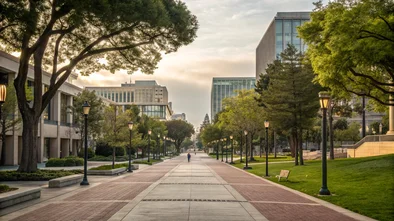Completing the Johannesburg Metro Police Department (JMPD) training programme opens the door to a structured and rewarding law enforcement career. If you're wondering what happens after the 18-month training, this guide will walk you through the typical career path, available ranks, promotion opportunities, and salary expectations within the JMPD.
What Happens After Training?
Once you complete the 18-month Metro Police Officer Training Programme, you’ll:
-
Take an official oath of office
-
Be deployed as a fully qualified Metropolitan Police Officer
-
Begin your career within the City of Johannesburg’s Department of Public Safety
You’ll receive a certificate of competence, and your appointment becomes permanent (subject to performance and policy compliance).
JMPD Job Titles and Rank Structure
Here’s a general outline of the job titles and ranks in the Johannesburg Metro Police Department:
| Rank | Job Title | Description |
|---|---|---|
| 1️⃣ | Constable | Entry-level officer after training. Responsible for general policing, traffic law enforcement, and by-law enforcement. |
| 2️⃣ | Senior Constable | Earned after a few years of service and good performance. Involves more responsibility and leadership within a patrol team. |
| 3️⃣ | Sergeant | Supervises a small team. Provides leadership during shifts and assists in planning operations. |
| 4️⃣ | Inspector | Mid-management role overseeing sections or specialized units. Coordinates operations and ensures compliance with policies. |
| 5️⃣ | Chief Inspector | Leads departments or divisions such as traffic, investigations, or community relations. |
| 6️⃣ | Superintendent | Senior role, often responsible for regional enforcement strategies. |
| 7️⃣ | Director / Deputy Director | Executive level, involved in overall department planning and policy-making. |
| 8️⃣ | Chief of Metro Police | Top leadership role within JMPD, appointed by the city. Oversees all strategic and operational areas. |
⚠️ Note: Rank progression depends on years of service, performance, qualifications, and available positions.
Opportunities for Promotion
JMPD encourages internal growth. Here’s how you can move up the ranks:
-
Consistent Performance – Show discipline, leadership, and commitment on the job.
-
Further Studies – Additional qualifications (e.g., law enforcement diplomas or NQF Level 6+) give you an edge.
-
Special Units – Join elite divisions like:
-
Tactical Response Unit
-
K9 Unit
-
Anti-Corruption Unit
-
Accident Investigation Unit
-
-
Internal Exams & Interviews – Promotions often involve competency assessments and interviews.
-
Years of Experience – Rank promotions may require minimum service years (e.g., 3–5 years per level).
Salary Expectations
Here are estimated monthly salaries (based on public data and job postings across metros):
| Rank | Estimated Monthly Salary (ZAR) |
| Constable | R11,000 – R16,000 |
| Senior Constable | R17,000 – R21,000 |
| Sergeant | R22,000 – R27,000 |
| Inspector | R28,000 – R35,000 |
| Superintendent | R36,000 – R45,000 |
| Director / Deputy Director | R55,000+ |
| Chief of Metro Police | R80,000+ |
💡 Salaries vary based on years of service, location, and department budgets. Officers also receive benefits, including medical aid, pension, uniform allowance, and overtime pay.
Long-Term Career Growth
Besides promotions, you can:
-
Transfer to other departments or municipalities
-
Move into training and development roles
-
Join policy or oversight boards
-
Pursue a career in national law enforcement, like SAPS or Traffic Management Agencies
👮♂️ In Summary
By completing the JMPD training programme, you don’t just get a job — you launch a structured career in public safety. Whether you choose to stay on the streets, specialize in tactical units, or climb the leadership ladder, the JMPD offers multiple pathways to grow and make an impact.
Ready to start your journey?
If you haven’t applied yet, check out our guide:
👉 How to Apply for JMPD 2025 Intake



